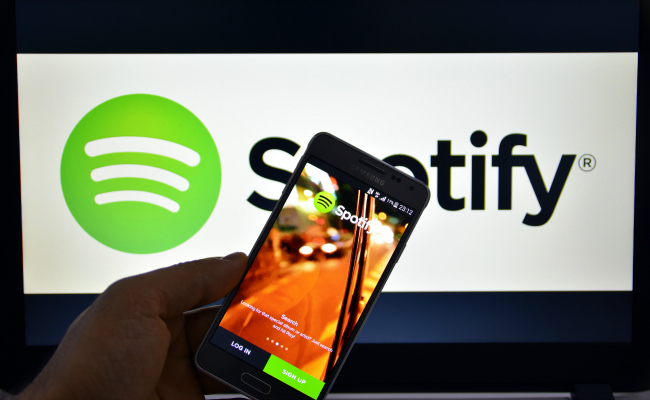
Update: This story has been updated with more information. Scroll for more.
Begun, the streaming wars have. Apple Music is releasing exclusives faster than we can listen to them, Pandora is on a quest of their own, Tidal still may or may not be getting bought by Apple Music, and Universal is taking their ball and going home. While everyone was shooting at each other or loading up in some sort of arms race, Spotify was fighting a Cold War of sorts with Apple. If an artist gives Apple any exclusive content, Spotify just so happens to make their songs harder to find.
For a year, Spotify has utilized what should be now and forever known as “top shelf” theory. Through limiting promotion and keeping tracks off playlists, the streaming giant has found a way to keep music from popular artists just out of reach from the consumer. According to Bloomberg, they use this practice for artists who give exclusives to Tidal as well. If nothing else, their pettiness is that of the equal opportunity variety.
While no one at Spotify is on record saying this is a thing, several artists and managers spoke to the publication about their tactics, some of which involved punishing artists not named Beyonce or Drake when they premiere exclusive music on Beats One.
What we’re left with is a feud over who can get the most exclusives. Apple has an ability to attract talent just like Spotify does, but rather than compete with it, they hurt the artists in the process. Why don’t they compete you ask? They believe that exclusive deals are “harmful to musicians, fans, and the growing business of music streaming.” Shoutout to Alanis Morissette.
Spotify’s position is easy to understand. In their minds, this is war and you can’t make an omelette without breaking a few eggs. Frank Ocean is out of their reach. They can try to hide him all they want, but he will be found because he’s Frank Ocean. MC Such-N-Such from around the way, though, can be touched and made an example of. It’s mob tactics, and if rumors are to be believed, that’s nothing new for the music business.
Ultimately, streaming services jockeying for the best position on the block is going to hurt the artists who need their support the most and in the end, how are they any different from the commercial radio system most of us have been rebelling against since we were teens?
This won’t be the last salvo in the streaming wars, but to quote the great Jim Ross, “business is about to pick up.”
Update: Spotify says the charges levied against them by Bloomberg and the New York Times are “unequivocally false.”
(Via Bloomberg)






